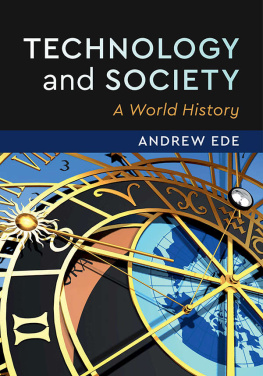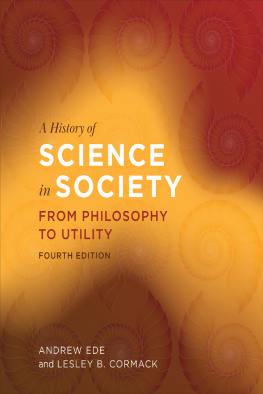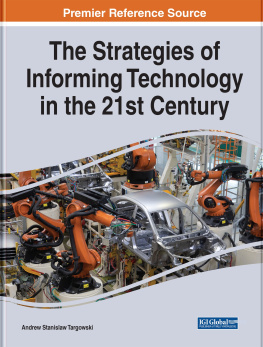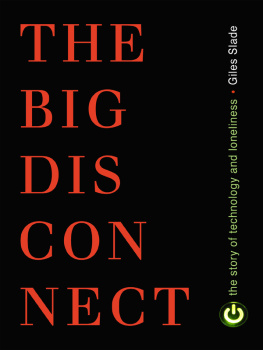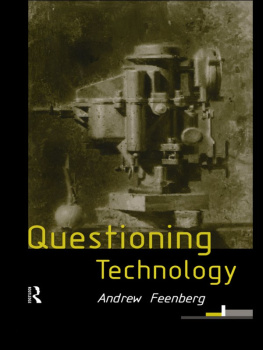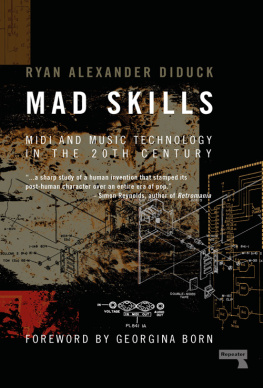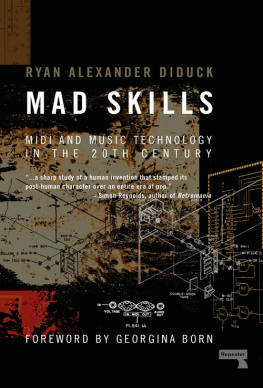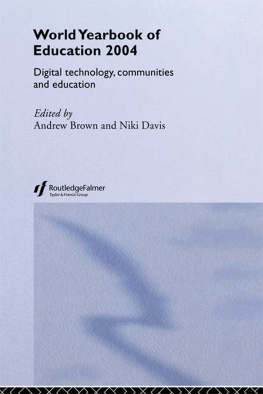Technology and Society: A World History explores the creative power of humanity from the age of stone tools to the digital revolution. It introduces technology as a series of systems that allowed us to solve real-world problems and create a global civilization. The history of technology is also the history of the intellectual and cultural place of our tools and devices. With a broad view of technology, we can see that some of the most powerful technologies such as education and government produce no physical object but have allowed us to coordinate our inventive skills and pass knowledge through the ages. Yet although all human communities depend on technology, there are unexpected consequences from its use which, as Ede shows, form a crucial part of this rich story.
Andrew Ede is a historian of science and technology whose research focuses on the intersection of science and technology in the twentieth century. He is the Director and founder of the Science, Technology and Society Program at the University of Alberta. Professor Ede earned his doctorate at the Institute for the History and Philosophy of Science and Technology at the University of Toronto. With Lesley B. Cormack, he is the co-author of the best-selling A History of Science in Society . He is a member of the Canadian Society for the History and Philosophy of Science, the History of Science Society, and the Society for the History of Technology, and was the program coordinator for the Three Societies Meeting in 2016.
University Printing House, Cambridge cb2 8bs, United Kingdom
One Liberty Plaza, 20th Floor, New York, ny 10006, usa
477 Williamstown Road, Port Melbourne, vic 3207, Australia
314321, 3rd Floor, Plot 3, Splendor Forum, Jasola District Centre, New Delhi 110025, India
79 Anson Road, #0604/06, Singapore 079906
Cambridge University Press is part of the University of Cambridge.
It furthers the Universitys mission by disseminating knowledge in the pursuit of education, learning, and research at the highest international levels of excellence.
www.cambridge.org
Information on this title: www.cambridge.org/9781108425605
doi: 10.1017/9781108348539
Andrew Ede 2019
This publication is in copyright. Subject to statutory exception and to the provisions of relevant collective licensing agreements, no reproduction of any part may take place without the written permission of Cambridge University Press.
First published 2019
Printed in the United Kingdom by TJ International Ltd, Padstow Cornwall
A catalogue record for this publication is available from the British Library.
Library of Congress Cataloging-in-Publication Data
Names: Ede, Andrew, author.
Title: Technology and society : a world history / Andrew Ede.
Description: Cambridge : Cambridge University Press, 2019. | Includes bibliographical refernces and index.
Identifiers: LCCN 2018033892| ISBN 9781108425605 (hardback) | ISBN 9781108441087 (paperback)
Subjects: LCSH : Technology Social aspects.
Classification: LCC t14.5 .e37 2019 | DDC 303.48/3dc23
LC record available at https://lccn.loc.gov/2018033892
isbn 978-1-108-42560-5 Hardback
isbn 978-1-108-44108-7 Paperback
Cambridge University Press has no responsibility for the persistence or accuracy of URLs for external or third-party internet websites referred to in this publication and does not guarantee that any content on such websites is, or will remain, accurate or appropriate.
Contents
Maps
Figures
Tables
Preface
The history of technology represents one of the most important thematic approaches to world history. It takes us from our ancient ancestors to the modern day, from stone tools and the discovery of fire to global transportation systems and supercomputers. Regardless of the vast increase in the complexity of the tools we have available to us today, our relationship with technology remains the same: We use technology to solve real-world problems.
Technology represents some of the greatest achievements of the human mind and made some of the darkest moments in history possible. Despite its importance to the study of history, there have been very few texts available for instructors and students at the undergraduate level. After many years of teaching the history of technology, in this book I provide a synthesis of various ideas and approaches to the question of technology as a key component of world history, based on the argument that technology is a system, not a collection of artifacts. Every form is imbedded in human society and requires human action to come into being, find use and in some cases be discarded. A hammer is only a hammer because it was created to do a particular thing, but both the maker and the user must have an understanding of what a hammer is for to make it useful. The hammer, by itself, is not the technology. It is the melding of the utility of the artifact and the conception of it that make a hammer an object of technology. There are also forms of technology that are not based on physical objects. Education and government are examples of these invisible technologies. Education is one of the most powerful technologies ever created, in part because it trains people to use technology.
The text identifies and discusses some of the pivotal moments in world history that have a technological component. It introduces a number of philosophical ideas that are important to thinking about technology, such as technological determinism and the problem of resistance to technological change.
I would like to thank my partner in everything Lesley Cormack for her help with this project. I would also like to thank my students, particularly those in the Science, Technology and Society Program, who inspired the creation of this book. In addition, the book benefited from the kind assistance of the reviewers whose encouragement and helpful suggestions improved the text.
Introduction: Thinking about Technology
Humans have always used technology, so a history of humanity would be incomplete without understanding the role it has played in our collective story. To understand technology in society, we need a definition of technology. This is not a simple task, since thinkers have been debating its effect on society since the time of the ancient Greeks. Technology should not be confused with tools, devices or machines. Physical objects, whether a stone axe or a supercomputer, are created in a specific human context and are part of a system of human knowledge. With a working definition, we can look at several of the most important issues that scholars have raised about the interaction of technology and society, particularly the problem of technological determinism, the general conditions that contribute to invention and the potential problems of technology in society.
To be human is to use technology. Everything we do, from telling stories around a campfire to examining the farthest reaches of the universe, is done using technology. The web of technology that makes human life possible is so pervasive that we are often only aware of it when it breaks down or suddenly changes. It is so closely tied to human existence that we identify groups of people by their access to technology, comparing industrialized countries to developing countries. We even classify vast periods of human history on the basis of technology such as the Neolithic period or New Stone Age, followed by the Bronze Age.

